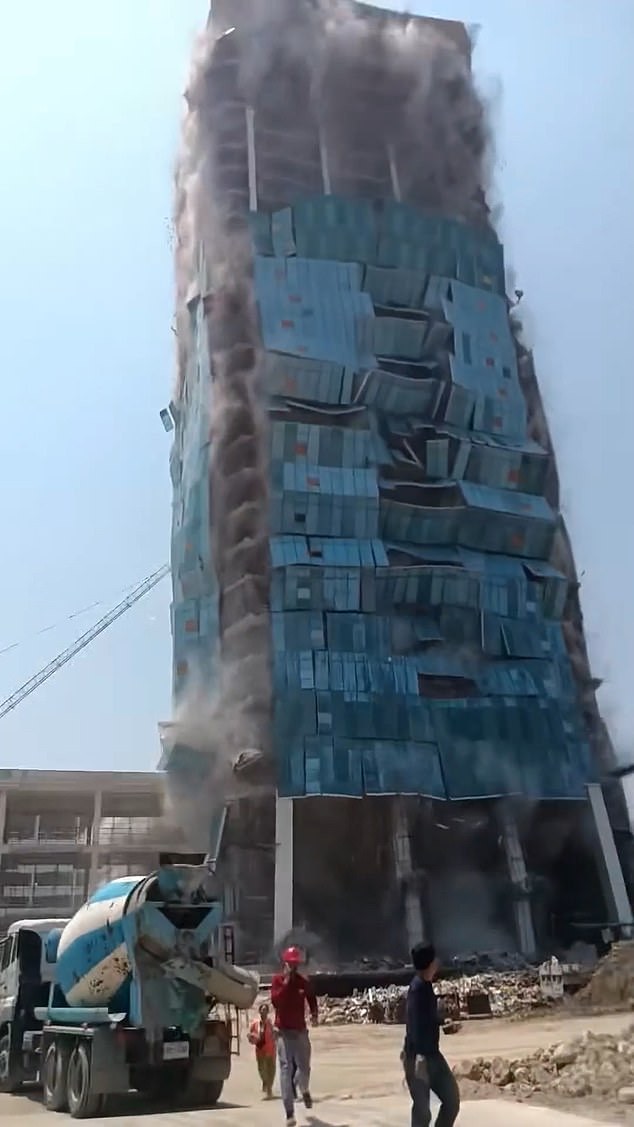On March 28, 2025, a massive 7.7-magnitude earthquake erupted beneath the surface of central Myanmar, sending powerful shockwaves across Southeast Asia. One of the hardest-hit regions outside the epicenter? Bangkok. As buildings shook, streets filled with panic, and structures collapsed, the city quickly found itself in a state of emergency. Thai officials declared Bangkok an “emergency zone” within hours—marking the most severe quake-induced disruption in the capital’s modern history.
People fled their offices, high-rises trembled, metro lines shut down, and the city that never sleeps was suddenly brought to a staggering halt. The quake didn’t just rattle windows—it rattled lives, systems, and an entire region’s sense of stability.
Why This Earthquake Is a Turning Point for Bangkok and the Region
This wasn’t just another tremor. Bangkok, while not new to feeling the occasional quake from distant tectonic shifts, has rarely been hit with an earthquake of this magnitude and impact. The collapse of a major high-rise under construction near Chatuchak Market, tragically claiming at least two lives and leaving dozens trapped, served as a grim reminder of the city’s vulnerability.
With the Thai Prime Minister swiftly enacting emergency protocols, this quake became more than a natural disaster—it became a national wake-up call.
The Earthquake’s Epicenter and Timeline
When and Where the 7.7 Quake Struck
The 7.7-magnitude earthquake struck at approximately 10:42 AM local time, with its epicenter located near Mandalay in central Myanmar. At just 10 kilometers (6.2 miles) deep, the quake’s shallow origin intensified its destructive force, sending out a seismic ripple that rocked everything from the temples of Myanmar to the skyline of Bangkok, more than 1,000 kilometers away.
How Deep and How Far It Reached
Seismologists noted that the quake’s shallow depth significantly increased its felt intensity, even in far-flung regions. Cities in Vietnam, India, and southern China reported shaking buildings and panicked evacuations. But it was in Bangkok where the impact was most visibly catastrophic outside Myanmar—proof that urban vulnerability transcends borders.
Immediate Impact in Bangkok
30-Story Skyscraper Collapses Near Chatuchak Market
The most harrowing moment of the day came when a 30-story high-rise, still under construction, collapsed just north of central Bangkok near the bustling Chatuchak Market. The structure pancaked within seconds, trapping construction workers and sparking a massive emergency response.
Dozens of emergency workers, firefighters, and medical teams swarmed the site. Drones scanned for heat signatures, while cranes and bulldozers were brought in to carefully lift concrete slabs. As of the latest reports, two fatalities have been confirmed, and dozens are still believed to be under the rubble.
Mass Evacuations and Panic in the Capital
Across the city, sirens wailed and loudspeakers blared emergency instructions. Office workers evacuated high-rise towers, schools quickly released students, and public transportation systems halted in a synchronized emergency maneuver. Within minutes, the typically chaotic but controlled buzz of Bangkok descended into full-blown panic.
Shoppers abandoned carts, tourists ran from temples, and traffic gridlock surged as people tried to flee what they feared might be the next epicenter. It was a moment of sheer uncertainty—and fear.
The Declaration of Emergency in Bangkok
Thai Prime Minister’s Response and National Emergency Protocols
Thai Prime Minister Srettha Thavisin took swift action, issuing an executive order declaring Bangkok an emergency zone. This allowed for immediate deployment of the military, national disaster response teams, and suspension of regular civil operations to prioritize search and rescue efforts.
He urged citizens to remain calm but vigilant, especially as the likelihood of aftershocks loomed. All schools and non-essential services were ordered to close for at least 48 hours while engineers inspected critical infrastructure.
Suspension of Transport and Business Operations
The earthquake’s tremors disrupted metro and BTS Skytrain services throughout Bangkok. The Stock Exchange of Thailand halted all trading sessions by early afternoon as a safety precaution, and several airports reported brief disruptions to operations.
Public and private sector businesses were urged to implement emergency protocols, and many major corporate buildings evacuated all personnel. In a city that thrives on commerce and connectivity, the sudden standstill was unprecedented.



